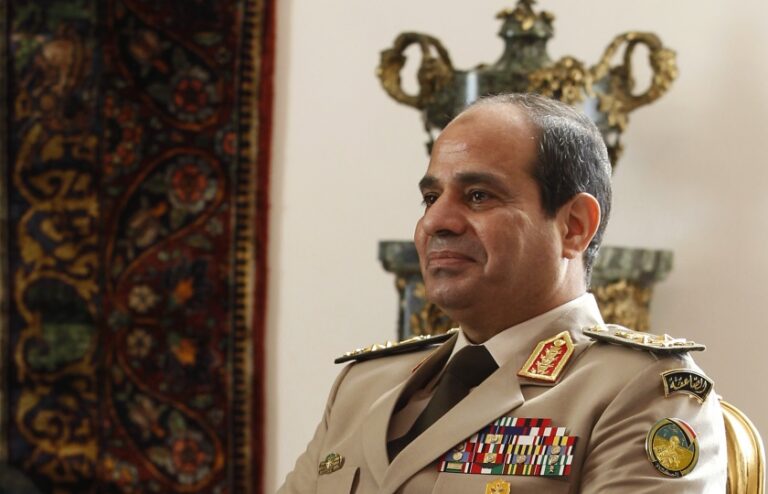General Mahmoud Tawfik, the Egyptian minister of interior, issued a decision to construct two new central prisons in Fayoum, raising the number of prisons constructed in Egypt after the military coup in 2013 to 27 prisons, and the total number of prisons in Egypt to 71.
Egypt’s official gazette issued the decision, which reported on the construction of a central prison affiliated to Yousuf al-Seddiq Police Station and another one affiliated to Sanhour Qebli Police Station. Until 2016, there were at least 320 detainees inside police stations all over Egypt, along with hundreds of others in other police offices. The Egyptian security uses camps belonging to central security forces, military prisons and national security headquarters as places of detention, against the law as they are not subject to judicial oversight.
Among the most prominent prisons constructed under Abdel Fattah al-Sisi are Saleheia Public Prison, which was built in 2014 in Sharqia on ten acres, the 15th of May Central Prison in 2015, which expands over 105,000 squared metres, and the Liman high security prison in Dakahlia over 42,000 square metres. At the same time new prisons have been constructed, old prisons have also been expanded to increase their capacity. For example, the prison complexes in Gamasa and Minya were expanded to accommodate 15,000 prisoners for each one. The 15th of May prison accommodates 4,000 prisoners despite the fact that it is a central prison, and central prisons’ capacities are usually limited to hundreds.
Prisons for political detainees
In November 2019, General Ashraf Ezz Alarab, former assistant of the minister of interior of the prisons sector, declared the release of 34,500 prisoners over 2019 according to presidential pardon decisions and parole decisions. Again, in November 2020, General Hesham el-Baradie, who succeeded Ezz Elarab, declared the release of 34,600 prisoners over 2020. In total, they released over 2019 and in 2020 up to 70,000 prisoners besides 20,000 prisoners for default who were also released, raising the total to 90,000 prisoners. In January, 3,000 more prisoners were released according to a presidential pardon decision. On the other hand, estimations put the number of political detainees in Egypt at 60,000, and the number is increasing due to the continuous detention of activists.
The Arab Network for Human Rights Information said that Egypt has witnessed a sharp rise in the construction of new prisons after the ouster of President Mohamed Morsi on 3 July 2013. This rise came parallel to the sharp rise in the number of political detainees, who were sentenced to imprisonment or ordered on remand for further years after the amendment of the law regarding the maximum period of remand, which made it endless; such an amendment contradicts the very basis of human rights. ANHRI confirmed that the rise in the number and capacity of prisons outnumbered the population growth and this indicates problems in the structure of the judiciary and penal code in Egypt.





Recent Comments